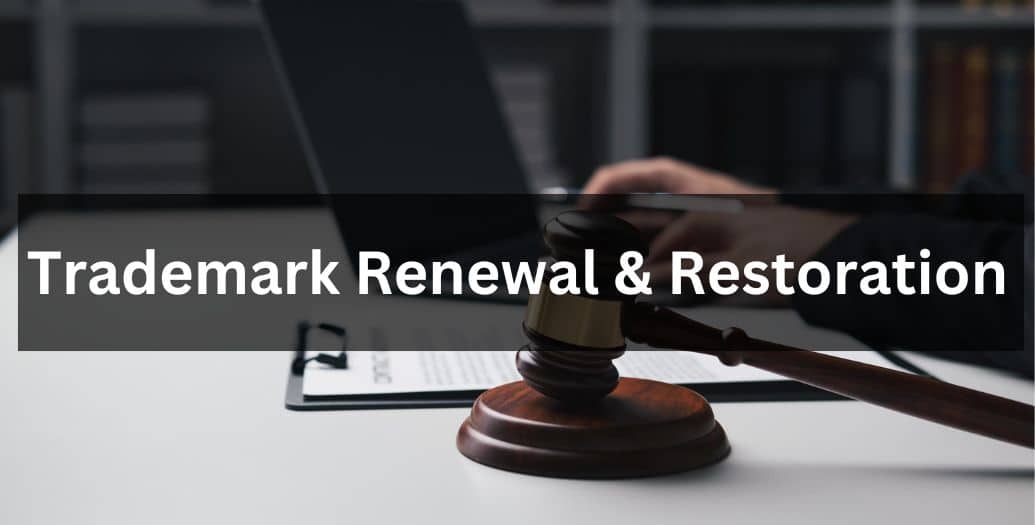- Patentability/Novelty Searches
- Freedom-to-operate (FTO) Search
- Validity/Invalidity Search
- Foreign Filing License (FFL)/Permission for Foreign Filing
- Patent Drafting
- Patent Filing & Prosecution in India
- Office Action Response
- PCT International Application
- PCT National Phase Filing & Prosecution
- Patent Filing & Prosecution in Foreign Countries
- Patent Opposition/Revocation
- Patent Watch
- Patent Renewal & Restoration
- Design Patentability/Registrability Search
- Design Invalidity Search
- Freedom-to-operate (FTO) Search [for Design]
- Design Patent Registration in India
- Design Patent Registration in Foreign Countries
- Design Opposition/Cancellation
- Design Watch
- Design Extension/Renewal

Trademark Renewal & Restoration
Trademark renewal and trademark restoration are essential legal procedures for businesses and individuals to maintain the integrity and protection of their brands. Trademarks are crucial for distinguishing goods and services and fostering consumer trust. However, trademarks can be removed from the register if not renewed on time, and restoration becomes necessary to reclaim these valuable assets.
A trademark in India is initially registered for ten years, with the possibility of indefinite renewals every ten years. To keep a trademark active, the owner must file a renewal application before the expiration date, accompanied by the requisite fee. If the renewal application is not submitted on time, the law provides a six-month grace period during which the owner can still renew the trademark by paying an additional fee.
If a trademark is not renewed within the stipulated period, it gets removed from the register, potentially opening the door for third-party registrations and misuse. However, the Indian legal framework offers a remedy through the process of trademark restoration. The proprietor can file a restoration application within one year from the date of expiration, along with the prescribed fee. This application is subject to the discretion of the Registrar of Trademarks, who considers whether the failure to renew was due to an honest mistake, inadvertence, or other sufficient cause. If satisfied, the Registrar will restore and renew the trademark for another ten years.
We at Delhi IP are dedicated towards effectively managing IP portfolios our clients and thus we ensure that the fees for the renewal of trademarks of our clients are made on time and consequently we reduce the administrative burden of making renewal fees every ten years from our clients. Further we also individuals and organizations who erroneously forgot to renew their trademark by filing trademark restoration application and by convincing the trademark registrar that the failure to renew the mark was due to honest mistake.